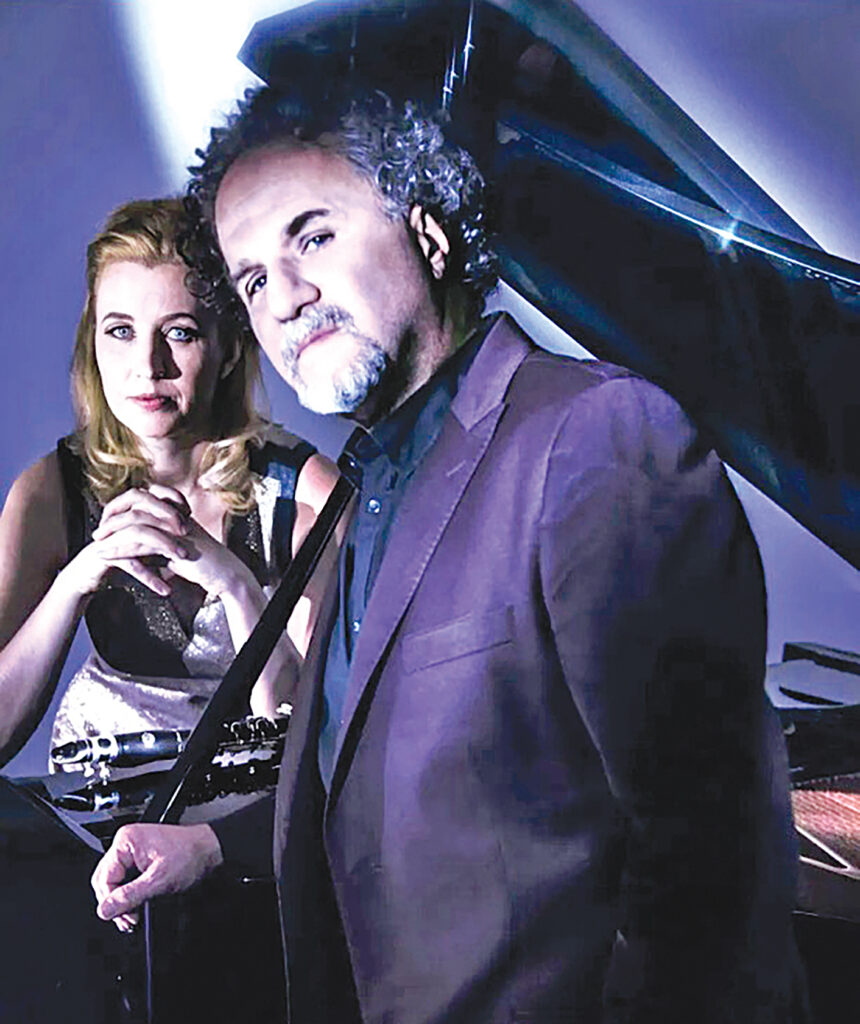Thinking it over: Shelter Islanders gather on World Brain Day

As the relentless march of aging make my knee and shoulder sore, as my lenses cloud and the upper range of my hearing disappears, I’m more interested than ever in keeping my brain in the best shape possible.
Crossword puzzles, making music, reading, and writing are my therapies, but to think well and deeply, I must practice brain health, and that’s what Nancy Green, co-chair of the Shelter Island Health and Wellness Committee and a team of experts were on hand to talk about under a tent outside the Community Center on Tuesday night, which happened to be World Brain Day.
Sponsored by the Shelter Island Health and Wellness Committee and the Shelter Island Library, a crowd showed up at dinnertime to learn about how to improve brain functioning and slow cognitive decline with moderate exercise, diet, sleep and engaging activities that researchers call stimulation, and most of us would call fun.
Dr. Jay Mohr, a Shelter Island resident retired from the Neurological Institute at the Columbia Presbyterian Hospital in New York, gave a brief history of medical treatment of the brain, including the drugs aspirin, warfarin, Coumadin and Eliquis that have been developed and used to manage and treat stroke since World War I.
Sarah Cohen, a physical therapist and administrator at the Center for Parkinson’s Disease at Southampton Hospital, spoke eloquently of the benefits of exercise in preventing stroke and other cardiovascular diseases, and shared some grim news about Parkinson’s Disease, “The prevalence of the disease has doubled in the past 20 years and will double again in the next 20,” she said. “I’ve heard it said in professional meetings across the country that if Parkinson’s was an infectious disease, you would be talking about the Parkinson’s pandemic.”

She said that people in midlife or in middle age who exercise regularly, particularly if it is moderate to high intensity exercise, have a lower chance of developing Parkinson’s, and offered information on several local programs to help people who want to get more exercise.
Dietitian Elyssa Hurlbut spoke of the importance of diet for brain health and ran down a list of foods that are part of a diet to promote and improve cognitive function, including olive oil, pistachios, walnuts, berries, cocoa, coffee and other treats.
Mary Henley, an expert in adaptive movement programs for people with physical and cognitive disabilities, led an exercise designed to evaluate and improve cognitive and motor function, which had the audience of almost 80 people laughing as they pointed their arms and thumbs and rotated their eyes, neck and head.
Shelter Island Police Department Sergeant Anthony Rando shared data about bicycle and e-bike injuries over the past five years that have resulted in brain injury. The officer reminded the audience of the importance of wearing a helmet (in brand-new condition) and to use lights and reflective clothing when walking or riding a bicycle or e-bike after dark.
Detective Sergeant Jack Thilberg, chief of operations for the Town of Shelter Island’s Emergency Management Service (EMS), spoke about how an EMS team evaluates the type of brain injury they are presented with, and weighs the time, distance and specialties of the area hospitals to determine the best option for the patients they transport.
Mark Kanarvogel, chief of EMS, was on hand to offer participants a rare look inside an EMS vehicle and to explain the many life-saving services offered by this team of volunteers, along with a full-time paid paramedic. Food for thought, and important lessons to feed and protect our most vital organ.









